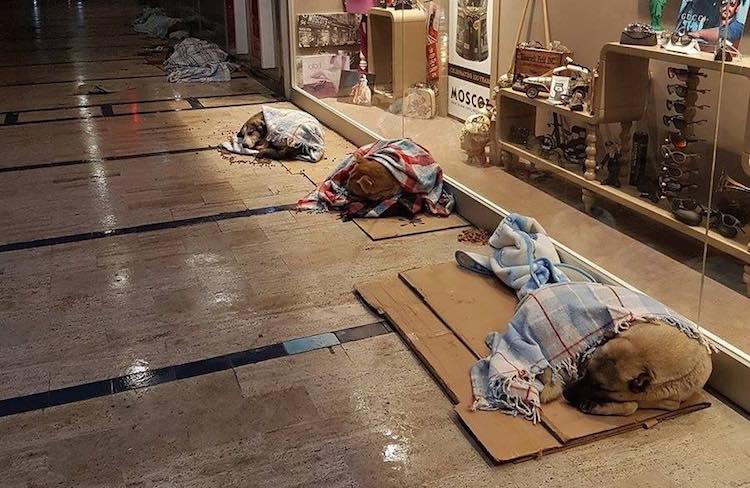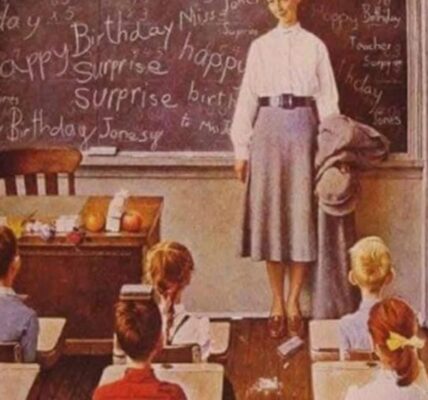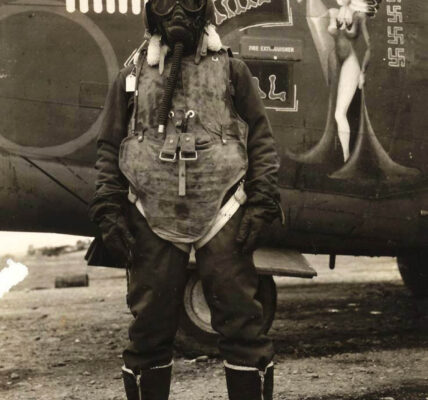
In Istanbul, winter storms can be merciless. When the snow falls heavy, it blankets the ancient city in white, silencing the streets and slowing even the busiest corners of life. But while people retreat to the warmth of their homes, for the city’s countless stray dogs—thousands of them roaming Istanbul’s alleys and boulevards—storms are often a matter of survival.
This past weekend, as snow pummeled the city, one place decided to rewrite that story. The Atrium Mall in the Bakirkoy neighborhood quietly opened its doors, not for shoppers, but for the forgotten.
Inside, dozens of stray dogs curled up on soft blankets, their weary eyes finally resting, their bellies full from bowls of food placed lovingly beside them. Volunteers moved gently among the animals, covering them with quilts, scratching behind ears, and offering soft words of comfort. For once, these dogs didn’t have to fight the cold, hunger, or loneliness. They were safe.
Among the volunteers was a woman named Hayvansever Ece Öçal. She told CNN that her heart ached for the strays, knowing how hard their lives could be, especially in brutal weather like this. But she added something powerful: “All of us, if we help as much as we can, can make sure that stray animals are taken care of.”
It was a simple reminder that compassion isn’t complicated. It doesn’t take wealth or power to change a life—it takes a decision to act.
Photos of the scene spread quickly on social media. Captured by Imgur user Balikadam, the images showed dogs nestled against one another on piles of blankets, their bodies finally relaxed, their eyes closed in the kind of sleep only safety allows. The pictures went viral across Turkish social networks, sparking an outpouring of admiration for the volunteers and the mall.
But beyond the viral fame was something more profound: the proof of what community looks like when people choose kindness. Istanbul is a city known for its relationship with animals. Cats and dogs wander freely through its streets, often cared for by shopkeepers and residents who leave out bowls of water or scraps of food. Yet, during harsh storms, survival becomes uncertain. This act—opening the doors of a shopping mall to strays—was a gesture of humanity that spoke louder than any advertisement or commercial could.
For the dogs, it was a miracle. Imagine living every day without certainty—where your next meal will come from, where you can rest without being chased away, whether you’ll survive the night. And then, in the middle of a storm, finding warmth, shelter, and kindness waiting for you.
For the volunteers, it was a labor of love. They didn’t see strays as nuisances or burdens. They saw them as lives worth protecting. Each blanket tucked around a shivering body, each meal shared, was an act of quiet heroism.
And for the rest of us, the story is a reminder: compassion doesn’t stop at the boundaries of species. To care for the vulnerable—whether human or animal—is to recognize that life itself is precious, and that kindness is the most enduring legacy we can leave behind.
As the snow piled higher outside, Istanbul’s strays slept peacefully inside the Atrium Mall. For one night, at least, they didn’t have to be survivors. They could simply be dogs—warm, loved, and safe.
When asked about it later, many of the volunteers shrugged off praise. To them, it wasn’t about being heroes. It was about doing what anyone could do: noticing suffering and stepping forward to ease it.
That weekend, in a city blanketed by snow, a shopping mall became more than a marketplace. It became a sanctuary. And the story of those dogs, curled up in warmth as the storm raged outside, became a symbol of hope that spread across the world.
Because sometimes, the measure of a community isn’t how it treats the powerful, but how it shelters the powerless. And in Istanbul, on a stormy winter’s night, compassion opened its doors—and lives were saved.




